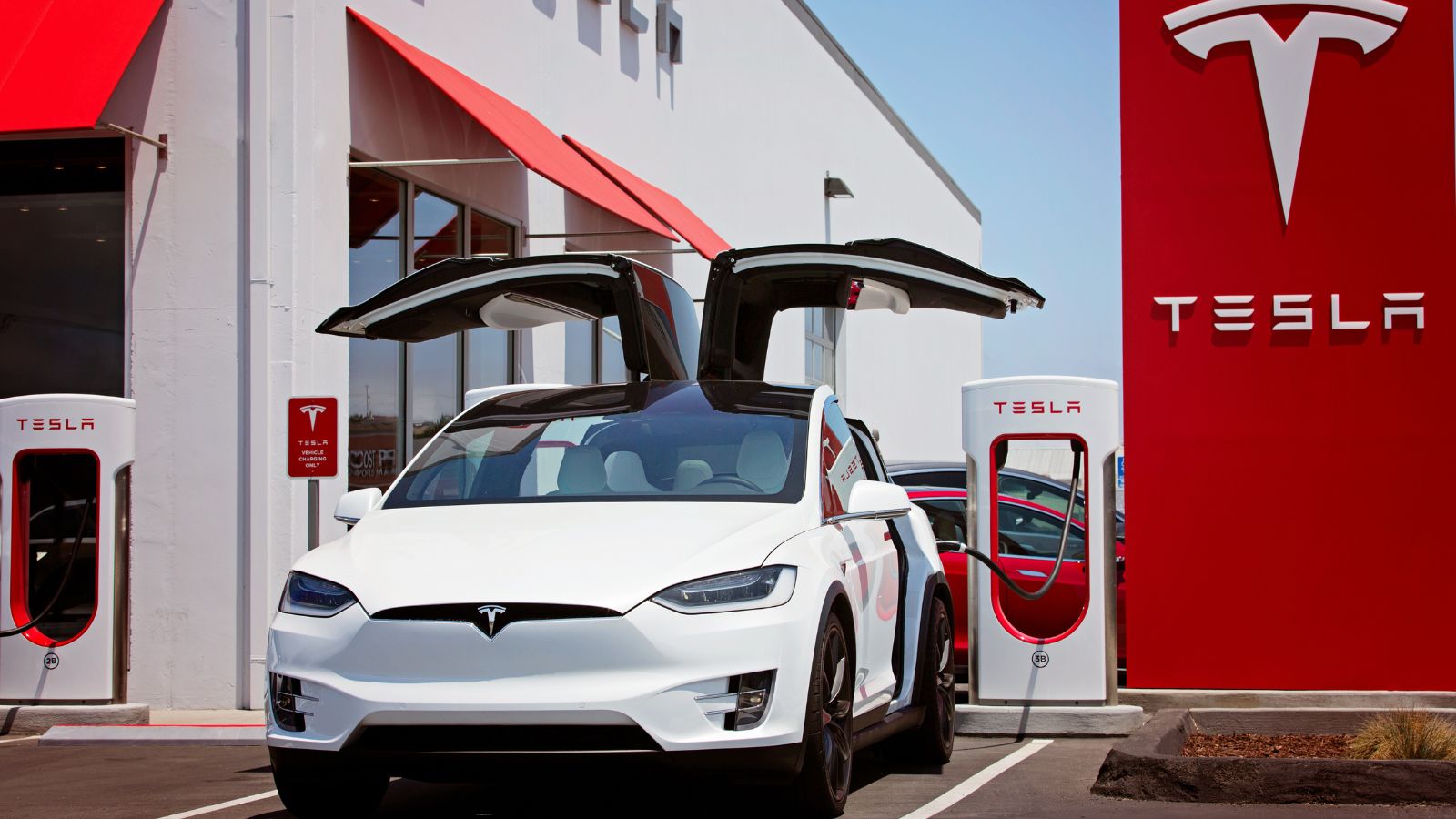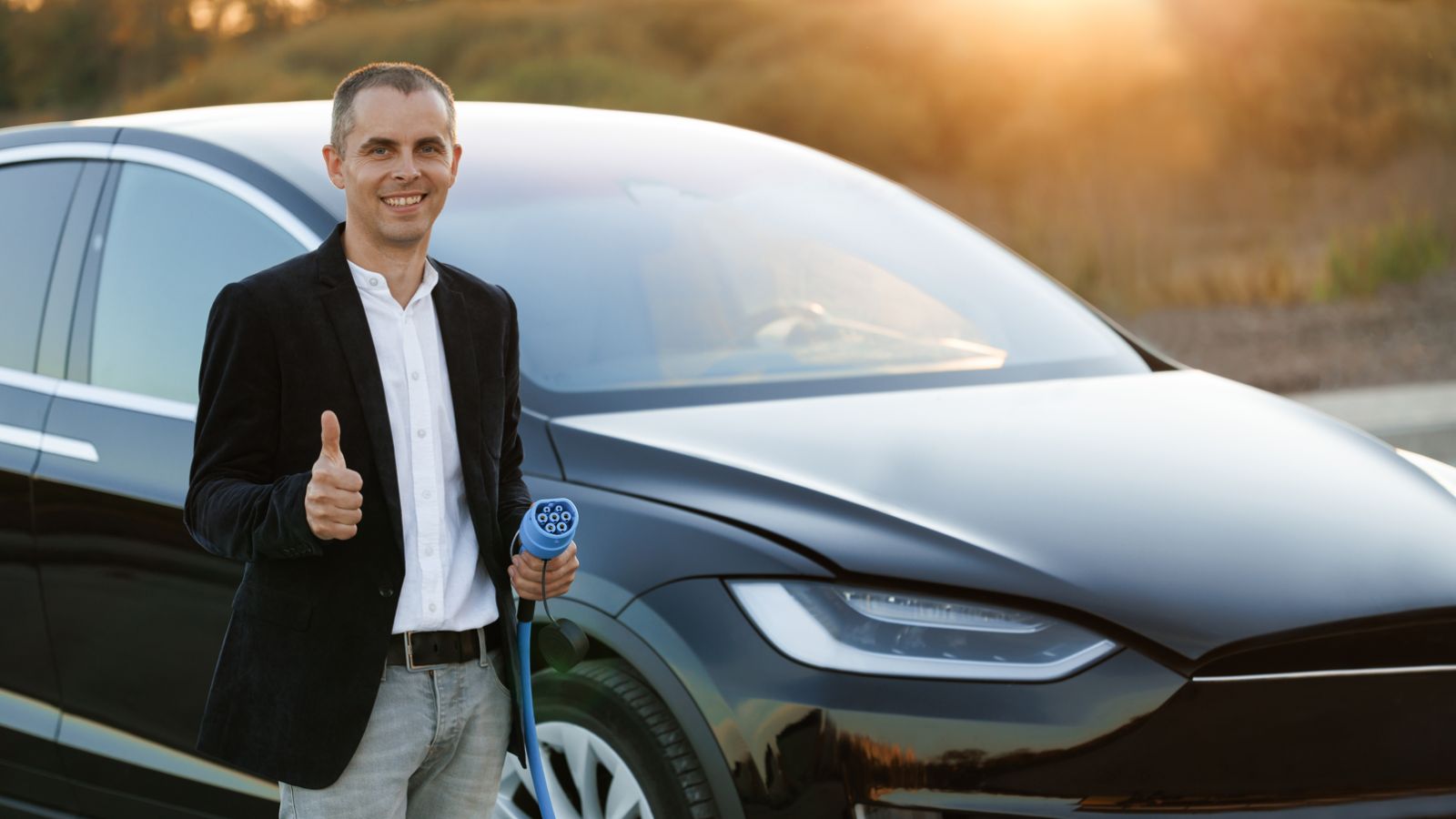Electric cars are the future, but why are more of us not driving these innovative vehicles? From concerns about range to sustainability and the overall cost, here are 17 things about electric vehicles that are off-putting to drivers, meaning many are sticking to gasoline models for the moment.
High Upfront Costs

Due to the high cost of batteries, electric cars are generally more costly, which may deter some buyers. The Guardian, however, reported that this may be changing. “Bloomberg New Energy Finance predicts that electric SUVs in Europe will hit price parity with petrol equivalents as early as 2025, but the US will be three years behind because of a preference for larger batteries.”
Limited Charging Infrastructure

At present, there are nowhere near as many public EV charging stations as there are gas stations, which makes long journeys inconvenient for drivers. Rural areas particularly lack charging points, and this means drivers fear running out of charge in the middle of nowhere.
Battery Lifespan and Replacement Costs

Research shows that, depending on how they’re used, a typical EV battery will last around 10–15 years and will gradually lose capacity over this time. Replacing the battery can be a significant expense, potentially costing owners thousands of dollars, which is off-putting for those looking to buy a new car.
Long Charging Times

When compared to the minutes it takes to refuel a gasoline car at the pump, electric vehicle charging times can be off-putting. The RAC says, “Charging speeds vary, from as little as 15 minutes using an ultra-rapid 350kW charger to as much as 24 hours.” Charging at home overnight is much more convenient, but this isn’t possible for everyone.
Insufficient Model Variety

While the variety of electric vehicle models is increasing, it still remains limited compared to gasoline models, especially when it comes to trucks and large SUVs. If a consumer is seeking a particular type of car, they may find electric vehicles to be limiting and end up returning to a gas engine.
Performance Misconceptions

Consumers often view electric vehicles as slower or less flexible, but this is a misconception. Electric cars can accelerate faster than many gasoline cars due to instant torque availability. On top of this, high-performance EVs are proving competitive in speed, meaning manufacturers need to communicate that this perception is outdated.
Range Anxiety

Many people fear that the range electric vehicles offer won’t sustain them for longer trips. The EPA has said that “the majority of households (roughly 85%) travel under 100 miles on a typical day. Most EV models go above 200 miles on a fully-charged battery, with nearly all new models traveling more than 100 miles on a single charge.”
Concerns About Cold Weather Effects

It is common for batteries to become less efficient in cold weather, and this can reduce the range the cars can travel before having to recharge. On top of this, they often require more energy to heat the interior of the car during cold weather, which further limits its battery range.
Lack of Mechanical Familiarity

Electric vehicles often require specialist mechanics to fix faults or service the technology due to the fact that many consumers and traditional mechanics are unfamiliar with the workings of the vehicles. Automotive training programs are increasingly working to include electric vehicles, but this expertise is still developing.
Charging at Home Challenges

While overnight charging is the most efficient and convenient way to charge an EV, this is not always possible for consumers, as many people who live in urban areas don’t have access to a dedicated parking space or driveway. On top of this, installing a home charger can be a significant cost in addition to the outlay for the vehicle.
Resale Value Uncertainty

Rapid advancements in technology and the high cost of battery replacement mean that electric vehicles depreciate at a higher rate. CNBC says, “A recent study showed that the average price of an EV fell 31.8% in the past year compared to just 3.6% for internal combustion engine vehicles.”
Inadequate Towing Capacity

Consumers who need to tow trailers or boats may find that an electric vehicle doesn’t suit their needs, as they typically have lower towing capacity compared to gasoline versions. Towing also reduces the range the car has, although advances are being made with this need in mind.
Fear of New Technology

It’s common for consumers to be hesitant to adopt new technology, especially when it involves a change in lifestyle. Misinformation and a lack of understanding can also drive these fears, so educational programs and test-driving experiences are crucial to demonstrating the perks of driving an EV.
Environmental Impact of Battery Production

The mining of sources such as lithium and cobalt, as well as the manufacturing process, raises questions about the sustainability of EV batteries. According to Earth.org, “the environmental impact of battery production comes from the toxic fumes released during the mining process and the water-intensive nature of the activity.”
Insurance Cost Considerations

Often, the cost of insuring an electric vehicle can be higher due to the higher cost of vehicle repair and replacement parts. As the market matures, however, insurance companies are adapting to this, and the costs are expected to stabilize. In fact, future prices could be lower than gasoline cars due to the impressive safety features of EVs.
Inconsistent Government Policies

While there have been many government policies and incentives surrounding electric vehicles, these have been inconsistent, meaning consumers aren’t confident in the schemes. There is also inconsistency between areas, with some regions providing substantial support for electric vehicles and others proving much less.
Electric Grid Reliability Concerns

The increase in electric cars has raised concerns about the capacity and reliability of the existing electrical grid, with many consumers fearing mass power outages. As a result, investments in the grid and renewable energy are essential to support this growth, as is education from the government.
Read More: 18 Reasons Why No One Is Interested in Working Anymore

The concept of traditional employment has taken a back seat in recent times with changes in economic and social factors, as well as individual preferences. Traditional jobs have also evolved, and many people don’t feel the need to take this route anymore. These are 18 reasons why no one is interested in working anymore.
18 Reasons Why No One Is Interested in Working Anymore
17 States Americans No Longer Want to Live In

America is constantly changing, and within it, so are its states. Some have new laws that residents don’t agree with, while others have increasing rates of unemployment or areas of extreme poverty. These aspects make it difficult for a person to stay in their home state. Here are 17 states that Americans are deciding to reconsider.
17 States Americans No Longer Want to Live In
18 Adult Traits That Are Frequently Traced Back to Difficult Childhoods

If an adult had a difficult childhood, they’re more likely to display some traits that those with a more stable upbringing might not develop. In this article, you’ll discover 18 of those traits.
18 Adult Traits That Are Frequently Traced Back to Difficult Childhoods
17 Most Friendly Wild Animals in the World

Are you an animal lover looking to learn more about the curious creatures that inhabit our planet alongside us? Discover the amicable side of the animal kingdom. Meet 17 of the world’s most sociable wild animals, from playful sea creatures to gentle land mammals.
17 Most Friendly Wild Animals in the World
17 Phrases Confident People Use to Stand Up For Themselves

Confidence is a healthy and attractive trait that helps us stand firm in our values and set healthy boundaries. We can always become more confident, and learning the right ways to stand up for yourself is a great way to start. Here are 17 phrases you can use to do so.

